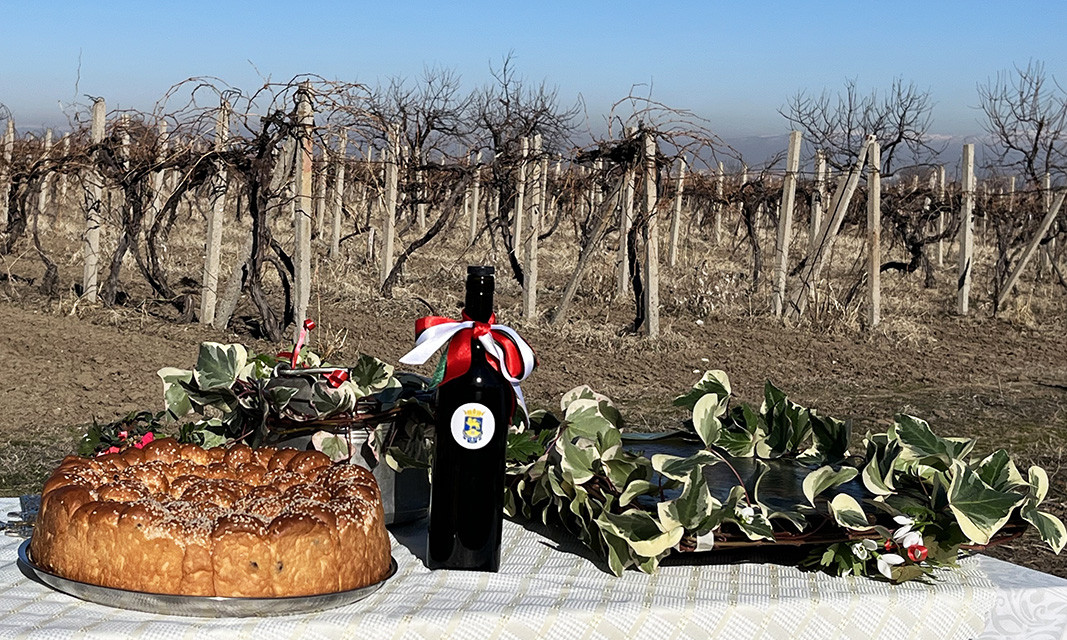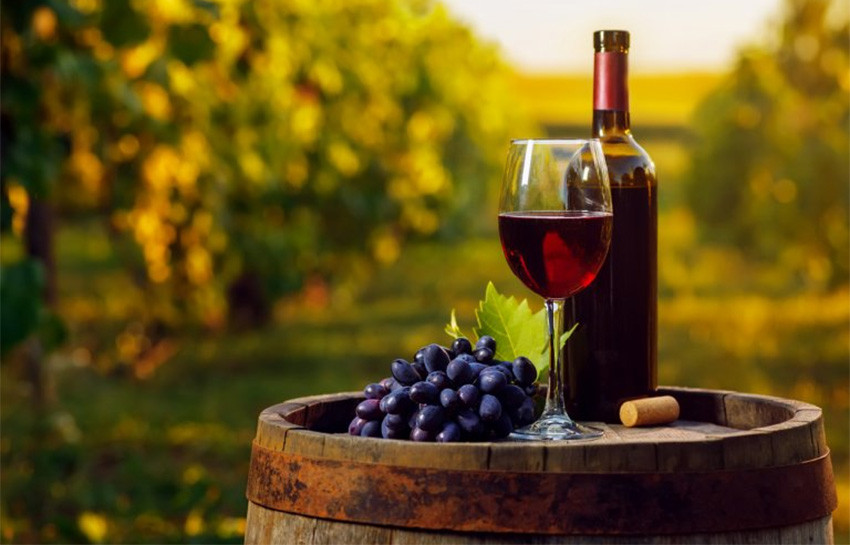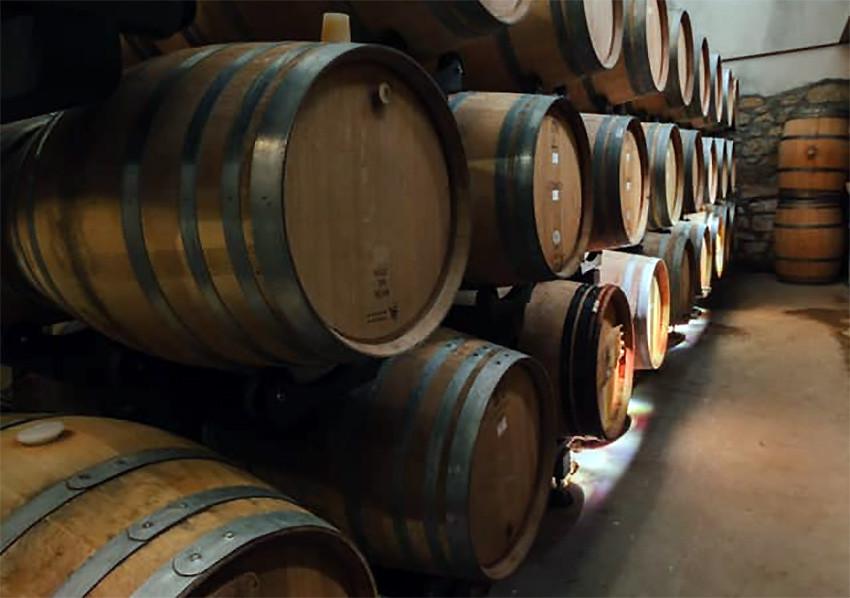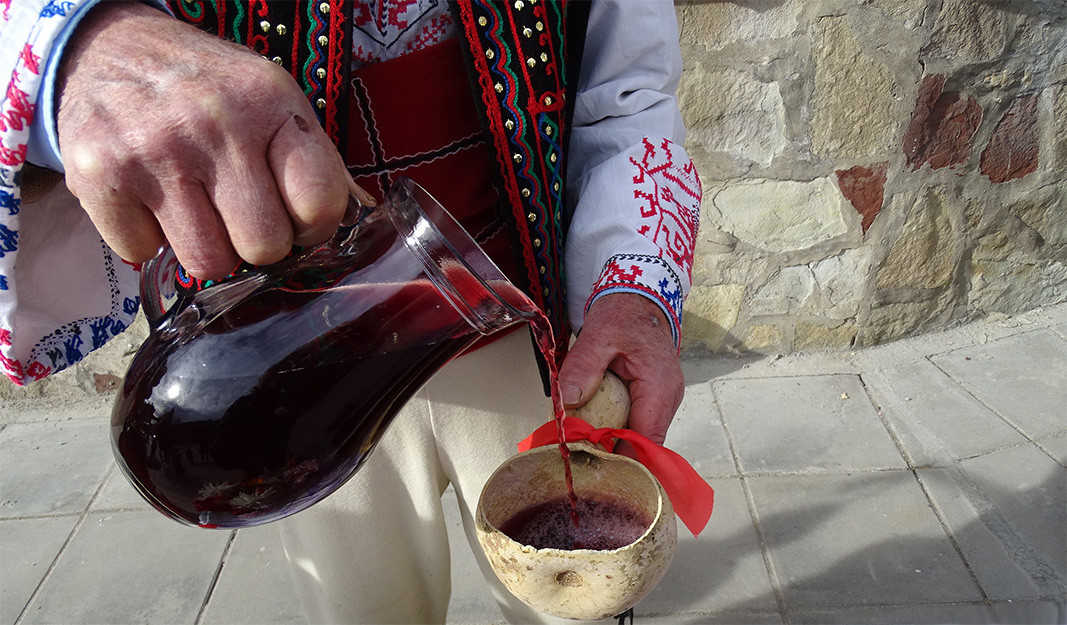Wine production has been going down on a global scale, and 2023 was the year with the lowest level of production in six decades, indicate data of the International Organisation of Vine and Wine (OIV). Bulgaria remains comparatively less affected by climate change, and the harvest of wine grape varieties gives producers reason to hope that the industry has the potential to develop in the future and will continue to provide a livelihood to hundreds of wine-producers. The traditions of making good wine in our lands are ancient. The Thracians considered wine “a gift from the gods”, and in our day, red wine is part of practically all rituals in the lives of Bulgarians. But there is one day in the year that is specifically dedicated to vines and wines.
On 14 February, the Orthodox church honours the memory of Saint Tryphon, but in popular tradition, he is known as Trifon Zarezan, and the first pruning of the vineyards for the year is the way he is honoured. It is the day celebrated by vine growers, winemakers and all people who love wine. 
On Trifon Zarezan, people in wine-producing regions organize lavish celebrations with lots of music, folklore rhythms, and, of course - wine. The ritual calls for all people to gather in the vineyards, and after the first pruning, the vines are watered… with wine – to make the year fruitful.
14 February is more than a day on which we can try out the Bulgarian wine grape varieties, it is a day on which we should hear what the people working at the wineries have to say. And they usually talk about the glory days of the 1980s, when Bulgaria was in 4th position in the world in the production and export of red wines. But all that is in the past because the wine industry in Bulgaria collapsed very quickly. Today there are hundreds of new and modern wine cellars making better wines than ever before. Nevertheless, production volumes are constantly going down, and exports are at an absolute minimum – at around only 16 million litres a year, says Dimitar Dimov, an ancestral wine specialist from the region of Veliko Turnovo, famed for its plentiful harvest and wine-making traditions:
“In Bulgaria, wine consumption, the demand for wine has never stopped, and our clients are the most accurate barometer showing which the best wines are. It is for them, the clients that we, oenologists, have been working,” says the wine maker from Yalovo village and adds:
“At the moment exports from Bulgaria have shrunk, and most of the wine made here is sold on the domestic market. At the same time, wine imports have gone up significantly, and Bulgarian producers have to compete with foreign wines which are often cheaper.”
Dimitar Dimov says there are many reasons why Bulgarian wine is not competitive on world markets. On the one hand – the lack of a state strategy of support to the industry, and on the other the low yields of the wine grape varieties which are having their effect and are pushing up the prices of Bulgarian production. According to the hereditary oenologist, most small wineries in this country do not have modern equipment; the planting of international wine grape varieties replacing the Bulgarian varieties, is one more low-yield factor.
But wine is more than a business, it is a cultural legacy and a way of life in some villages – like Brestovitsa in the region of Plovdiv. There, every household has a vineyard and they all know how to make good wine. Trifon Zarezan has been the village’s patron saint’s day for as long as anyone can remember, and it brings in guests from near and far, said Krasimir Patishanov, manager of Brestovitsa cooperative winery:
“A large portion of our production is exported to China, for example, which is a major market for us – before the pandemic we had reached 70,000-80,000 bottles a year. That is the future of Bulgarian wine, if we are successful on these markets, then the whole industry will be successful. The feast day has always brought thousands to Brestovitsa. The festival this year is once again accompanied by lots of singing, dancing, folk music performances, and of course – wine.” 
Translated and posted by Milena Daynova
Photos: BTA, BGNES, Facebook/Brestovitsa municipality, Pixabay
Teodora Byalkova joined the Bulgarian Sunday school "Sts. Cyril and Methodius" in Athens in the 2022/23 school year. At that time, she also organized the dance formation "Ludi-Mladi" for current and graduated students. Since then, the..
The village of Novo Selo is located on the road between Veliko Tarnovo and Sevlievo. Here archaeologists have found tools used by people during the Chalcolithic, which testify to an active economic life in the area. There is also..
The mountain resort of Bansko is set to become the capital of mountaineering culture, adventure, and travel, featuring films, exhibitions, and presentations that detail the limits of human possibility. From November 19 to 23, the "Bansko Film..

+359 2 9336 661
